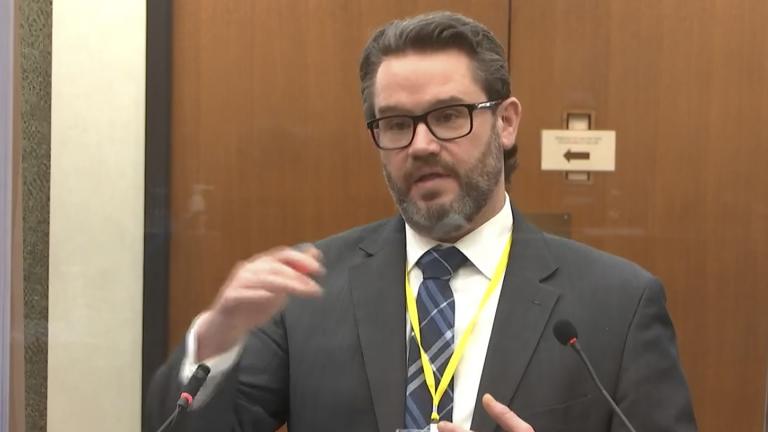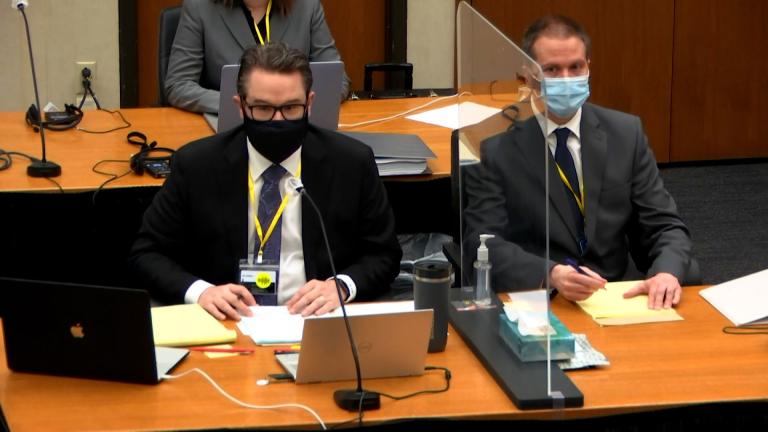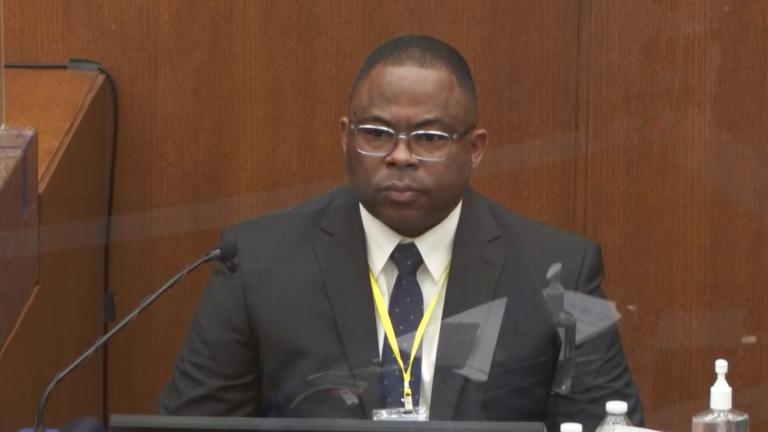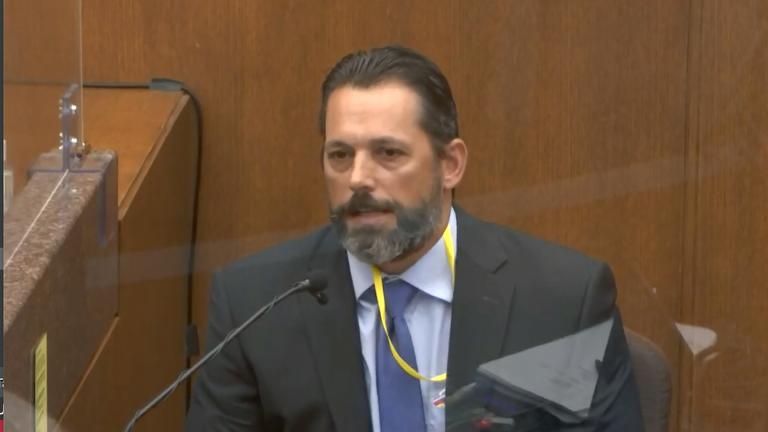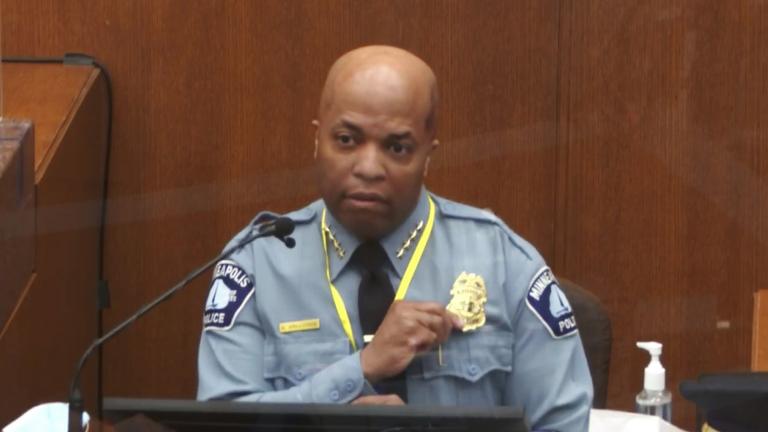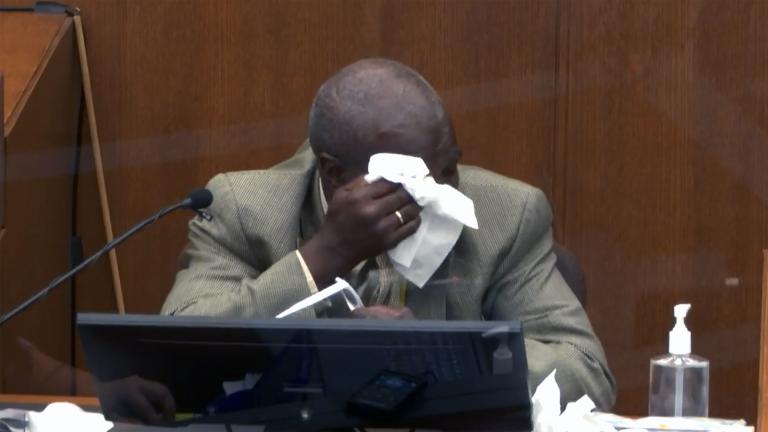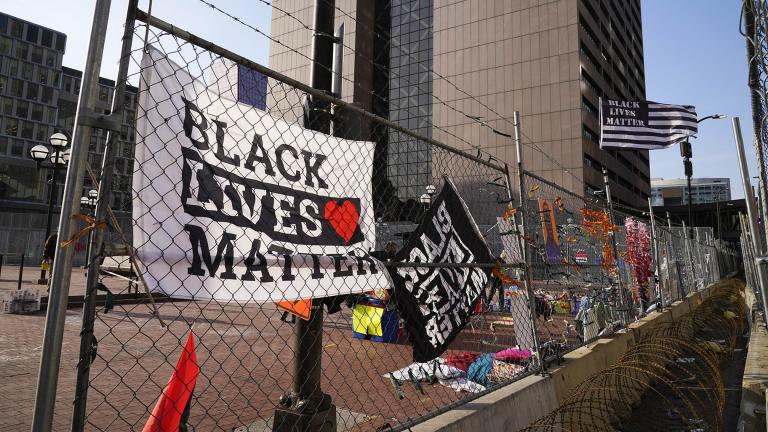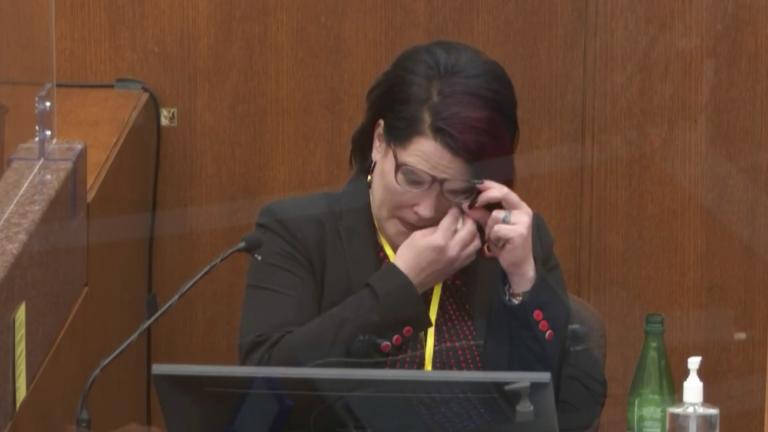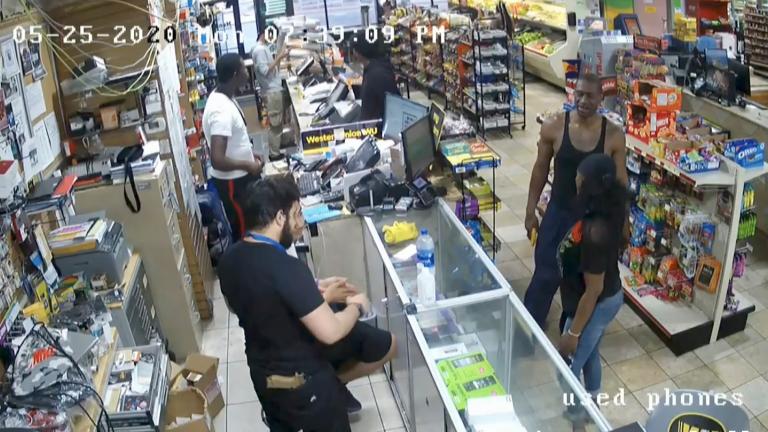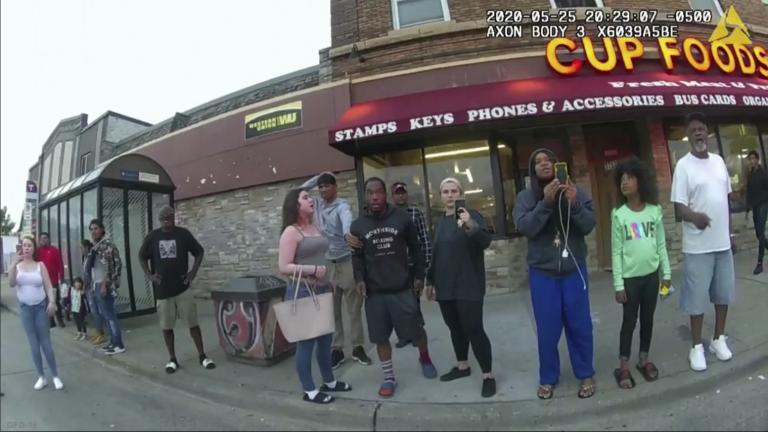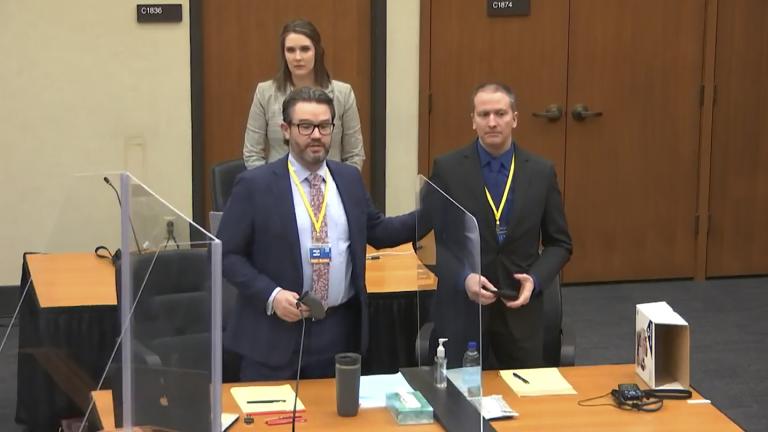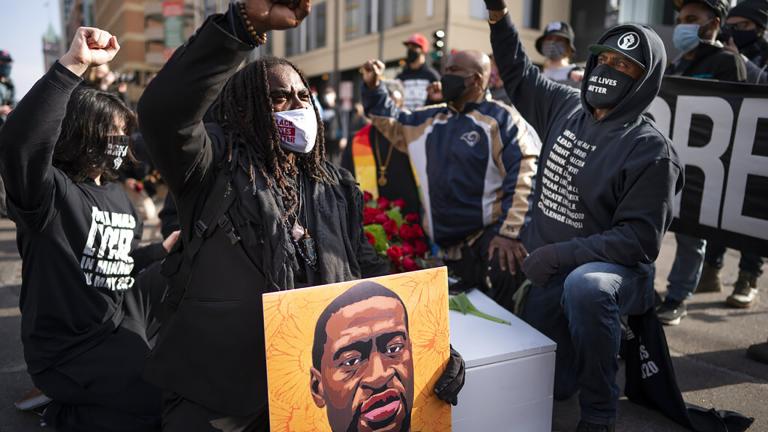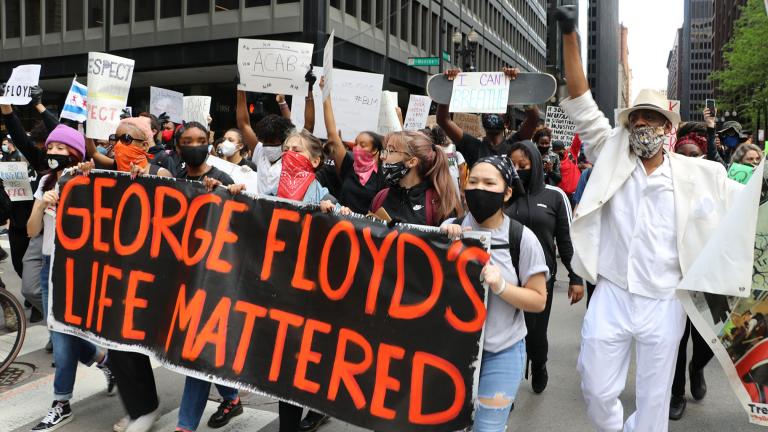Derek Chauvin’s defense attorney appears to be making a series of moves aimed at undermining a dominant narrative of George Floyd’s death — established through bystander video — of a reckless, arrogant cop ignoring a man’s “I can’t breathe” cries as his life is snuffed out.
Derek Chauvin
Hennepin County Chief Medical Examiner Dr. Andrew Baker’s testimony could be crucial, as Baker ruled Floyd’s death last May a homicide and identified the cause as “cardiopulmonary arrest” that occurred during “law enforcement subdual, restraint, and neck compression.”
George Floyd died of a lack of oxygen from being pinned to the pavement with a knee on his neck, medical experts testified at former Officer Derek Chauvin’s murder trial Thursday, emphatically rejecting the defense theory that Floyd’s drug use and underlying health problems killed him.
Officer Derek Chauvin had his knee on George Floyd’s neck — and was bearing down with most of his weight — the entire 9 1/2 minutes the Black man lay facedown with his hands cuffed behind his back, a use-of-force expert testified Wednesday at Chauvin’s murder trial.
Minneapolis police are taught to restrain combative suspects with a knee on their back or shoulders if necessary but are told to “stay away from the neck when possible,” a department use-of-force instructor testified Tuesday at former Officer Derek Chauvin’s murder trial.
The Minneapolis police chief testified Monday that now-fired Officer Derek Chauvin violated departmental policy — and went against “our principles and the values that we have” — in pressing his knee on George Floyd’s neck and keeping him down after Floyd had stopped resisting and was in distress.
The televised trial of Derek Chauvin, the former white police officer charged in the death of George Floyd, has provoked strong emotions among many Black men and women — all tinged with an underlying dread that it could yield yet another devastating disappointment.
Kneeling on George Floyd’s neck while he was handcuffed and lying on his stomach was top-tier, deadly force and “totally unnecessary,” the head of the Minneapolis Police Department’s homicide division testified Friday.
George Floyd’s girlfriend tearfully told a jury Thursday the story of how they met — at a Salvation Army shelter where he was a security guard with “this great, deep Southern voice, raspy” — and how they both struggled mightily with an addiction to opioids.
After the ambulance took George Floyd away, the Minneapolis officer who had pinned his knee on the Black man’s neck defended himself to a bystander by saying Floyd was “a sizable guy” and “probably on something,” according to police video played in court Wednesday.
Onlookers grew increasingly angry as they begged Minneapolis Officer Derek Chauvin to take his knee off George Floyd’s neck, but Chauvin would not let up, and another officer forced back members of the crowd who tried to intervene, witnesses testified Tuesday at Chauvin’s murder trial.
The video of George Floyd gasping for breath was essentially Exhibit A as the former Minneapolis police officer who pressed his knee on the Black man’s neck went on trial Monday on charges of murder and manslaughter.
Jurors at all trials feel pressure, knowing their decisions will alter lives. But the weight on jurors in Minneapolis is in a whole different category as they’ll be asked whether to assign guilt in the death of a Black man that prompted some of the largest protests in U.S. history.
A jury has been seated for the trial of a former Minneapolis police officer in George Floyd’s death, with opening statements set for March 29 in a case that led to weeks of protests and a national soul-searching about racial justice.
The attorney for George Floyd’s family said Friday that a $27 million settlement of a federal lawsuit by the city of Minneapolis is the largest pretrial civil rights settlement ever.
Floyd family attorney Ben Crump called it the largest pretrial settlement ever for a civil rights claim, and thanked city leaders for “showing you care about George Floyd.”

